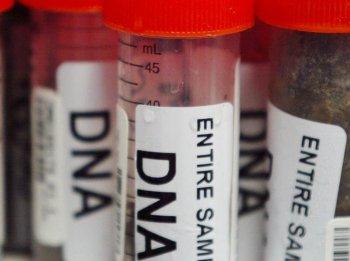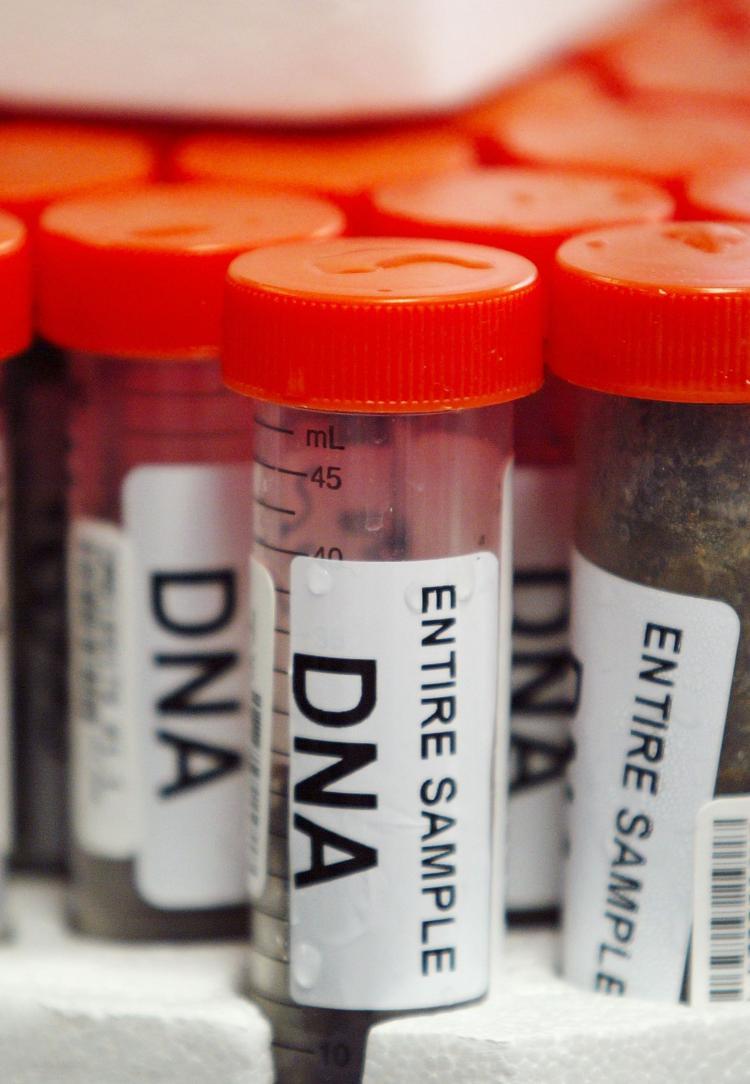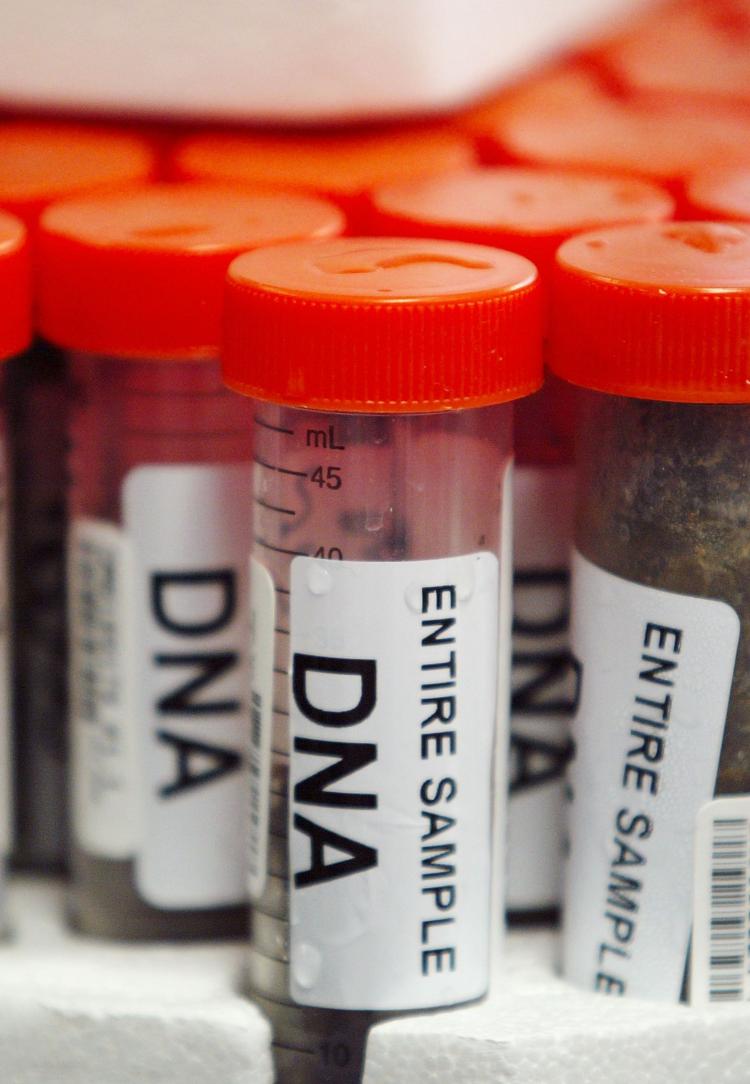EDMONTON—A Senate committee is recommending that Canada’s DNA Identification Act be amended to make it easier to collect DNA samples from convicted criminals.
While stressing the need to achieve a balance between public protection and personal privacy, the Senate Committee on Legal and Constitutional Affairs has outlined 22 recommendations in its statutory review of the Act.
“No other forensic identification technique is as effective in aiding criminal investigations as DNA,” Senator John Wallace, deputy chair of the committee, said in a news release.
“It is an extremely important tool for the administration of justice in Canada, and consequently, the committee decided that certain areas of the National DNA Data Bank should be expanded, with caution, in order to further enhance the protection of Canadians.”
According to the Senate report, the Criminal Code must be amended to allow for immediate and automatic collection of DNA samples from adults convicted of designated offences without the need for a court order.
The report says that according to several witnesses, the current system requiring a court order before a DNA sample can be collected is “administratively cumbersome and could be improved.”
“While allowing such sampling would almost certainly create some additional costs, both for police and the Data Bank, in terms of time spent taking samples as well as in processing those samples and turning them into profiles, these changes would likely result in reduced costs and effort in other parts of the criminal justice system,” the report says.
The DNA Identification Act was passed in 1998 and became official in 2000. The Act allowed the creation of the National DNA Data Bank to assist police investigations. Using the data bank, investigators can match DNA profiles from a crime scene to DNA profiles from other crime scenes or DNA profiles of criminal offenders stored in the data bank to help solve crimes.
To date, the data bank has assisted in over 15,000 investigations, including 1,080 murder and 2,031 sexual assault cases, and contains 195,074 profiles of convicted offenders. The number of offences classified as designated offences requiring DNA collection has also grown substantially since the legislation was passed.
Another recommendation made by the committee is establishing a framework to allow automatic DNA collection from young persons convicted of a serious designated offence but to require a court-ordered collection in other circumstances.
The accused should also have access to relevant information about the analysis done on their DNA samples, and the information from the National DNA Data Bank should be shared with international entities that Canada has agreements with or when investigating crimes that happened in foreign countries in the absence of treaties.
In addition, the report says the National DNA Data Bank should be enhanced with a missing person’s index and an unidentified human remains index.
One of the more controversial subjects reviewed by the committee was whether the Act should be amended to allow police to perform “kinship analysis” in case an exact match to an offender is not found. This would allow the police to know that they are likely looking for a close relative of an individual whose profile is already in the data bank and help narrow down the list of suspects.
Although this is already being done in the U.K. and many U.S. states, the Senate committee says that the approach would entail serious privacy concerns and needs to be studied further by the Department of Justice before it is implemented.
“Kinship analysis or familial searching could lead to genetic surveillance of certain groups of people who are overrepresented in the justice system, such as Aboriginal persons or other racial or ethnic minority groups,” witnesses told the committee.
While stressing the need to achieve a balance between public protection and personal privacy, the Senate Committee on Legal and Constitutional Affairs has outlined 22 recommendations in its statutory review of the Act.
“No other forensic identification technique is as effective in aiding criminal investigations as DNA,” Senator John Wallace, deputy chair of the committee, said in a news release.
“It is an extremely important tool for the administration of justice in Canada, and consequently, the committee decided that certain areas of the National DNA Data Bank should be expanded, with caution, in order to further enhance the protection of Canadians.”
According to the Senate report, the Criminal Code must be amended to allow for immediate and automatic collection of DNA samples from adults convicted of designated offences without the need for a court order.
The report says that according to several witnesses, the current system requiring a court order before a DNA sample can be collected is “administratively cumbersome and could be improved.”
“While allowing such sampling would almost certainly create some additional costs, both for police and the Data Bank, in terms of time spent taking samples as well as in processing those samples and turning them into profiles, these changes would likely result in reduced costs and effort in other parts of the criminal justice system,” the report says.
The DNA Identification Act was passed in 1998 and became official in 2000. The Act allowed the creation of the National DNA Data Bank to assist police investigations. Using the data bank, investigators can match DNA profiles from a crime scene to DNA profiles from other crime scenes or DNA profiles of criminal offenders stored in the data bank to help solve crimes.
To date, the data bank has assisted in over 15,000 investigations, including 1,080 murder and 2,031 sexual assault cases, and contains 195,074 profiles of convicted offenders. The number of offences classified as designated offences requiring DNA collection has also grown substantially since the legislation was passed.
Another recommendation made by the committee is establishing a framework to allow automatic DNA collection from young persons convicted of a serious designated offence but to require a court-ordered collection in other circumstances.
The accused should also have access to relevant information about the analysis done on their DNA samples, and the information from the National DNA Data Bank should be shared with international entities that Canada has agreements with or when investigating crimes that happened in foreign countries in the absence of treaties.
In addition, the report says the National DNA Data Bank should be enhanced with a missing person’s index and an unidentified human remains index.
One of the more controversial subjects reviewed by the committee was whether the Act should be amended to allow police to perform “kinship analysis” in case an exact match to an offender is not found. This would allow the police to know that they are likely looking for a close relative of an individual whose profile is already in the data bank and help narrow down the list of suspects.
Although this is already being done in the U.K. and many U.S. states, the Senate committee says that the approach would entail serious privacy concerns and needs to be studied further by the Department of Justice before it is implemented.
“Kinship analysis or familial searching could lead to genetic surveillance of certain groups of people who are overrepresented in the justice system, such as Aboriginal persons or other racial or ethnic minority groups,” witnesses told the committee.







